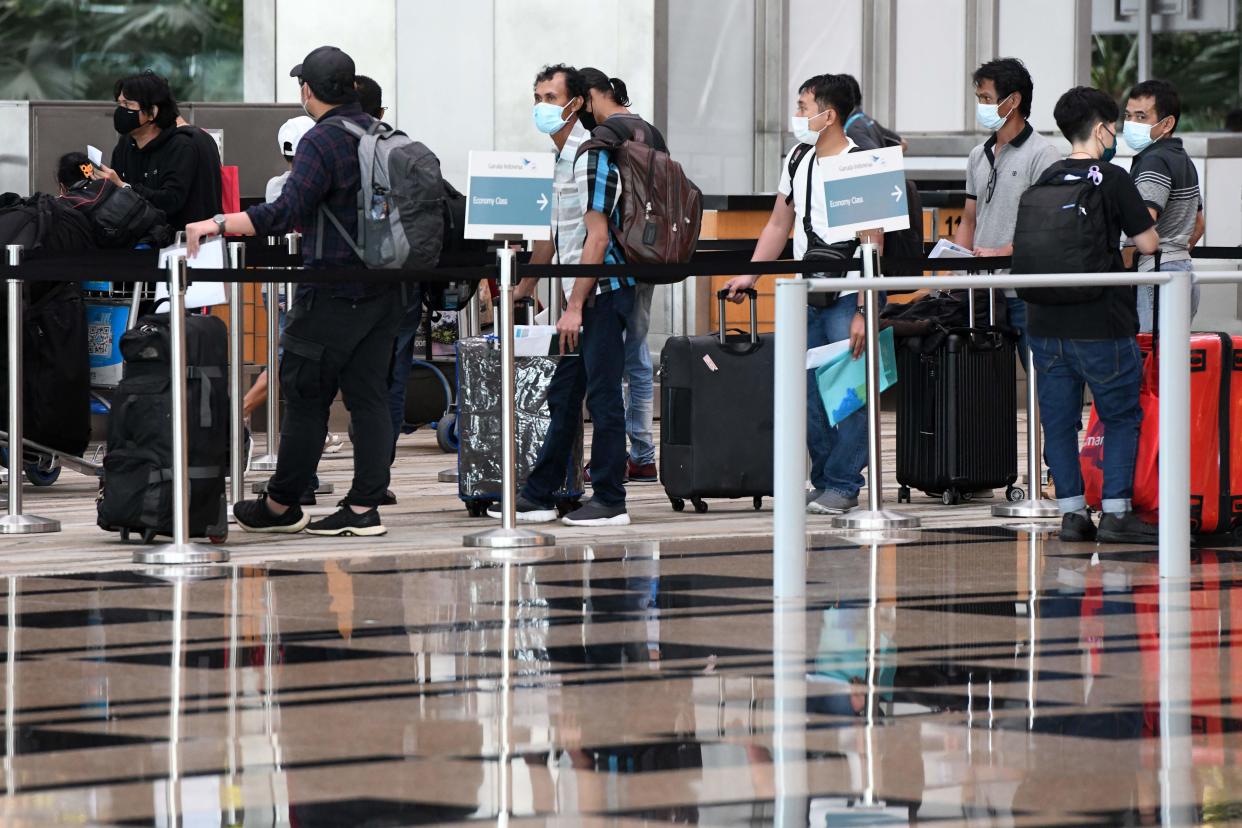Singaporean travellers can now access subsidies, insurance for COVID-19 treatment

SINGAPORE — Singapore citizens, permanent residents (PRs) and long-term pass holders who travelled out of the country on or after 27 March will now be able to access government subsidies or insurance coverage, should they be diagnosed with COVID-19 after they return.
The Ministry of Health (MOH) said in a media release on Tuesday (20 October) that the move is in line with the move to progressively reopen Singapore’s borders.
Travellers will now be able to access government subsidies or insurance coverage such as MediShield Life/Integrated Plans or private insurance to pay for their inpatient medical bills if they have onset of symptoms for COVID-19 within 14 days of their return to Singapore.
Before this, only those who travel on permitted travel regimes such as reciprocal green lanes, or students who travel overseas for full-time studies, are allow to access such subsidies or insurance coverage.
MOH also said that the government will continue to pay any COVID-19 medical bills for citizens, PRs and long-term pass holders who left the country before 27 March.
Enabling more travellers to enter without serving SHNs
MOH said that it is also exploring ways to deploy more frequent testing, coupled with other safeguards, to enable more travellers to enter Singapore without a need to serve Stay-Home Notices (SHNs), while minimising the risk of transmission to the community.
Currently, travellers from low-risk countries or regions – those which have comprehensive public health surveillance systems and displayed successful control over the spread of the COVID-19 virus – are allowed to enter Singapore after a COVID-19 test, without the need to serve a multiple-day SHN.
Travellers from higher-risk countries or regions, however, are currently still being subjected to SHN at home or at dedicated SHN facilities.
“Unlike larger countries which can keep their borders closed, our livelihoods and economic survival depend heavily on Singapore being open to the world and being a key international and travel hub,” said the MOH in its media release.
“It is therefore not possible for Singapore to keep our borders closed indefinitely. We will have to gradually allow more travel to resume in a safe manner.
“The Multi-Ministry Taskforce will continue to explore parallel tracks such as vaccines, treatment, testing and other technologies which could enable us to further ease restrictions and resume connectivity with the world in a safe manner.”
Stay in the know on-the-go: Join Yahoo Singapore's Telegram channel at http://t.me/YahooSingapore
Related stories:
TraceTogether use to be mandatory at workplaces, schools, malls and others by December
COVID-19: Phase 3 may begin year-end but nightlife venues unlikely to reopen then
Singapore to vaccinate parts of population against COVID-19 from next year
COVID-19: Singapore pilots pre-event antigen rapid tests ahead of Phase 3, results within 15 mins



